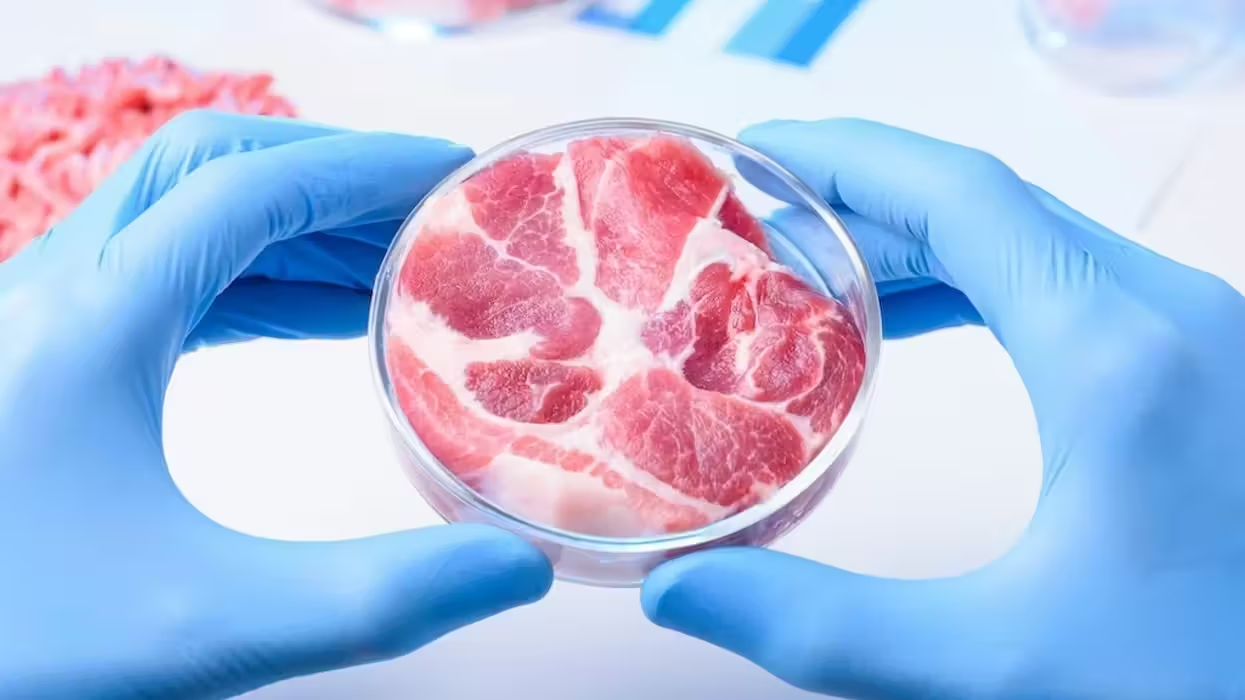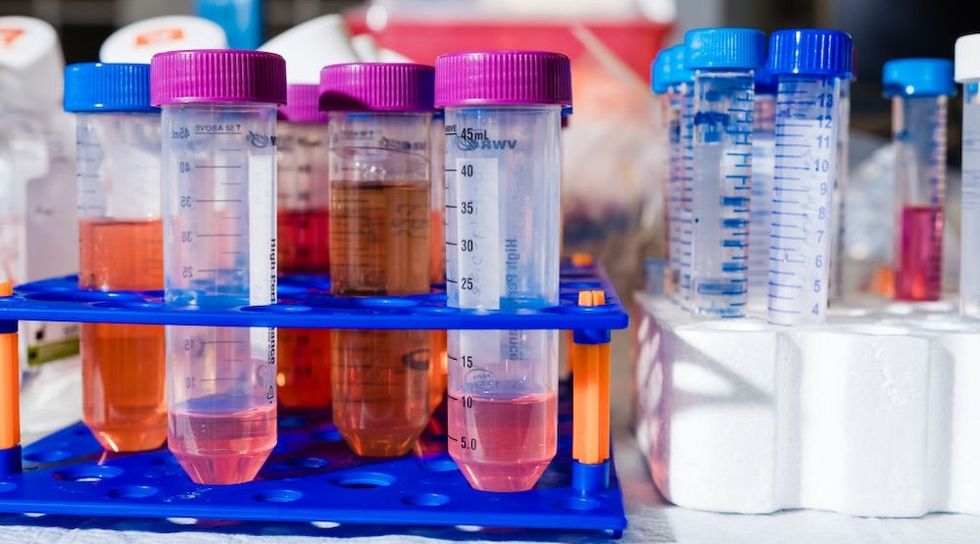
nevodka via iStock/Getty Images

Ultra-processed ‘meat’ is pushed as innovation. What it really means is higher risk of disease, destroyed ranching communities, and corporate dominance.
The push for lab-grown and artificial meat is no accident. It is a coordinated campaign to reframe how Americans think about food. From glowing media coverage to celebrity endorsements, the message is clear: Ranching is destructive, eating real meat is backward, and the future belongs to synthetic substitutes.
Beneath the glossy propaganda lies a troubling experiment — one that threatens the livelihoods of ranchers, undermines food security, and hands more control of the food supply to corporate and global elites.
Plant-based “meat” products like Beyond Meat and Impossible Foods use plant matter mixed with additives to mimic the flavor and texture of beef. Lab-grown “meat” is even more radical: animal cells cultivated in bioreactors through a chemical process, then marketed as the real thing.
These companies aren’t simply offering another option at the grocery store. They are trying to redefine what counts as food — and consolidate who controls it.
Both are ultra-processed concoctions. They imitate rather than nourish, raising serious questions about their long-term effects on human health.
Under normal circumstances, such products would remain niche novelties. But with heavy investment from billionaires like Bill Gates, development has accelerated. Gates has argued that “all rich countries should move to 100% synthetic beef” and poured millions into the industry. At the same time, mainstream media outlets have worked overtime to present lab-grown and plant-based meats as inevitable, urgent, and morally superior.
The driving force is not consumer demand. It is financial interest. These companies aren’t simply offering another option at the grocery store. They are trying to redefine what counts as food — and consolidate who controls it.
Consumers are told they are “saving the planet.” In reality, they are enriching investors and empowering corporations that want to dominate the food supply chain.
The supposed “better” alternatives raise their own health concerns. Plant-based burgers are not vegetables pressed into patties but chemical cocktails that include methylcellulose, a laxative additive, and soy leghemoglobin, a genetically engineered substance designed to mimic myoglobin, the protein in meat that people often mistake for blood.
Lab-grown meat, even less tested, relies on processes with no precedent at scale. Regulators are barely beginning to study safety issues. Meanwhile, we already know ultra-processed foods shorten lives. A 19-year study linked high consumption of such foods to a 31% higher mortality rate, along with increased rates of obesity, diabetes, and heart disease.
To assume that fake meat will escape these dangers is wishful thinking.
If this were merely a matter of consumer choice, the stakes would be lower. But the movement does more than promote itself. It vilifies ranching, branding cattlemen as climate villains.
That message lands hardest when ranchers are already under siege. U.S. cattle numbers have fallen to 86.7 million head — the lowest since 1951. Since 2017, more than 100,000 beef operations have closed, a 15% decline. Rising feed costs, volatile markets, and the dominance of giant packers already squeeze small producers. Fake meat could finish the job.
RELATED: Florida bans lab-grown ‘meat.’ Who’s next?

When family ranches collapse, food production falls even more under the control of corporate giants and investors with little connection to rural America. Transparency disappears. Communities lose their anchor. Consumers end up beholden to whoever controls the labs.
This push isn’t about “helping the planet.” It’s about gaining control and consolidating power.
Markets work only when buyers get honest information and producers compete on equal footing. State and federal officials should:
Supporting ranchers and strengthening antitrust enforcement would do more for food security and public health than subsidizing experimental startups.
Fake meat is sold as progress. In reality, it risks damaging our health, weakening our food supply, and destroying the ranchers who have long fed the nation.
Even if lab-grown meat proves harmless, centralizing control over food erodes transparency, accountability, and community. The future of food should not be synthetic. It should be local, rooted in real ranching, and kept in the hands of Americans who have nourished this country for generations.
Carson Reinarz